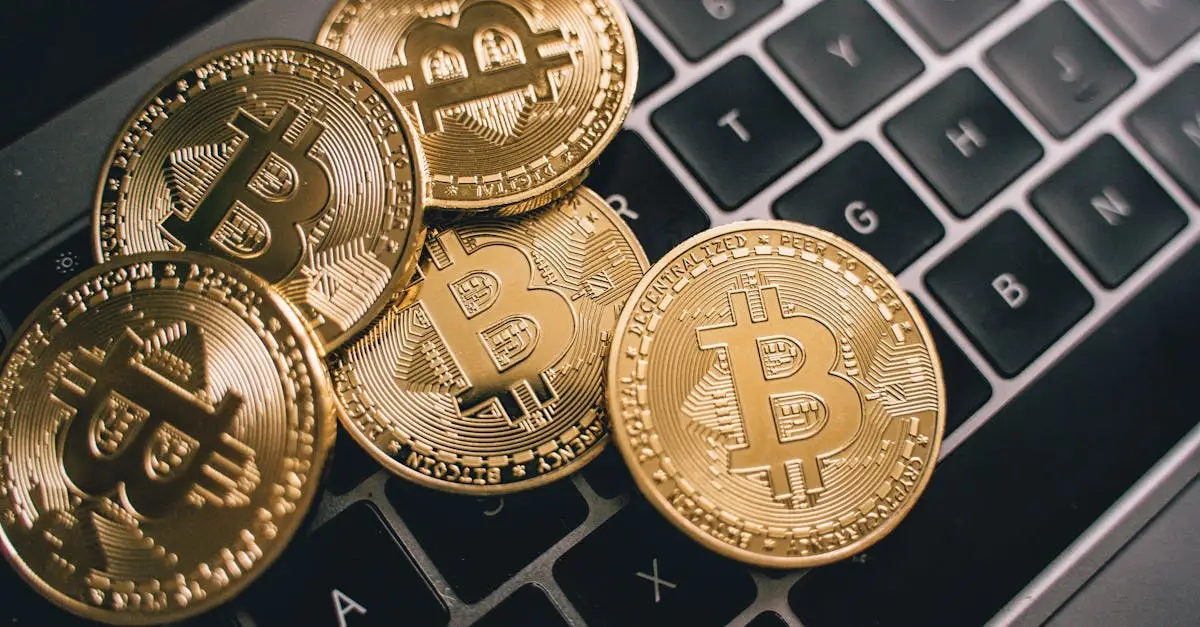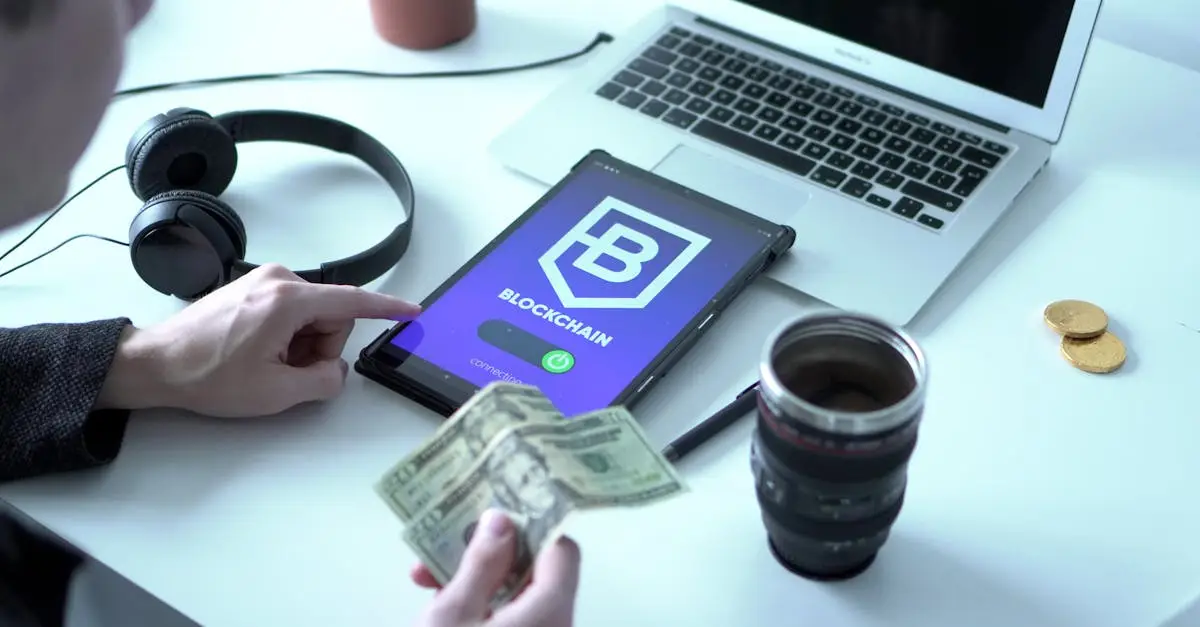Welcome to the intricate world of Digital Assets and Cryptocurrencies. In today’s technological landscape, the rise of blockchain technology has revolutionized the way we perceive transactions, security, and data management. Understanding the fundamentals of blockchain is crucial to unravel the complexities of this decentralized network. By exploring real-world applications, we can uncover the diverse uses of blockchain technology in various sectors, from finance to healthcare to supply chain management.
Exploring the Potential of Blockchain Technology
Blockchain, as a decentralized ledger system, offers a transparent and secure way to store data and facilitate transactions. The role of cryptography in blockchain ensures that information is encrypted, protecting it from unauthorized access. By incorporating smart contracts, blockchain technology can automate agreements and transactions, streamlining processes and reducing the need for intermediaries. The integration of blockchain in healthcare systems enhances the security and privacy of medical records, empowering patients and healthcare providers with secure data management solutions.
- Understanding the fundamentals of blockchain technology
- Exploring real-world applications of blockchain in various sectors
- Role of cryptography in securing blockchain transactions
- Impact of smart contracts on automating agreements
- Integrating blockchain in healthcare for secure medical records
The Evolution of Blockchain Technology
As blockchain continues to evolve, new challenges and opportunities emerge. From implementing blockchain in voting systems for enhanced security to exploring the potential of Initial Coin Offerings (ICOs) for fundraising, the landscape of digital assets is constantly shifting. Regulatory frameworks and government involvement play a crucial role in shaping the future of the crypto market. Emerging trends in tokenization and asset digitization offer innovative solutions for the financial sector, paving the way for new investment opportunities.
- Challenges and opportunities of using blockchain for voting systems
- The rise of Initial Coin Offerings (ICOs) and their role in fundraising
- Regulatory frameworks and government involvement in the crypto market
- Emerging trends in tokenization and asset digitization
- Exploring the Impact of Blockchain Technology on Cryptocurrencies
The rise of Initial Coin Offerings (ICOs) and their role in fundraising
The world of Crypto. has seen significant growth in recent years, with Initial Coin Offerings (ICOs) playing a crucial role in this expansion. ICOs have become a popular method for startups to raise capital by issuing digital tokens. These tokens are then sold to investors in exchange for cryptocurrency, providing a new way for companies to secure funding.
The Importance of ICOs
One of the key advantages of ICOs is their ability to democratize the fundraising process. By allowing anyone to invest in early-stage projects, ICOs open up investment opportunities to a global audience, breaking down traditional barriers to entry in the world of finance. This accessibility has led to a surge in the number of ICOs being conducted across various industries.
The Evolution of ICOs
Initially, ICOs were primarily used by blockchain and crypto. projects to raise funds for development. However, as the concept gained traction, companies from diverse sectors began to explore ICOs as a viable fundraising option. This shift has enabled businesses of all sizes to leverage Crypto. technology for capital generation.
The Future of Fundraising
Looking ahead, ICOs are poised to continue reshaping the fundraising landscape. As the regulatory environment evolves to accommodate this new fundraising model, more companies are expected to turn to ICOs as a way to access capital. This trend signifies a marked departure from traditional fundraising methods and highlights the growing influence of Crypto. in the financial sector.
Regulatory frameworks and government involvement in the crypto market
Crypto. currency has gained significant attention in recent years as a decentralized digital currency that operates independently of a central authority. The rise of crypto. has led to an increased need for regulatory frameworks and government involvement to ensure market stability and investor protection.
The Role of Regulatory Frameworks
Regulatory frameworks play a crucial role in the crypto. market by establishing guidelines and rules to govern the issuance and trading of digital currencies. These frameworks are essential in promoting transparency, preventing fraud, and protecting investors from market manipulation.
Key components of regulatory frameworks include licensing requirements for crypto. exchanges, anti-money laundering (AML) regulations, and know your customer (KYC) policies. By imposing these regulations, governments can mitigate risks associated with crypto. transactions and ensure compliance with financial laws.
Government Involvement in Oversight
Government involvement in the crypto. market is essential to monitor and regulate the activities of participants. Regulatory bodies oversee compliance with established frameworks, conduct investigations into fraudulent practices, and enforce penalties for non-compliance.
Moreover, governments collaborate with international organizations to develop standardized regulations that promote cross-border transactions and enhance global cooperation in regulating the crypto. market.
Benefits of a Regulated Market
A regulated crypto. market offers several benefits, including increased investor confidence, reduced market volatility, and improved market integrity. With clear guidelines in place, investors can make informed decisions and participate in the market with greater security.
Regulations also pave the way for institutional investors to enter the crypto. market, leading to improved liquidity and market stability. Additionally, regulatory oversight helps to legitimize crypto. as a legitimate asset class and promotes its widespread adoption.
Regulatory frameworks and government involvement in the crypto market
Emerging trends in tokenization and asset digitization
Crypto. currencies have been revolutionizing the financial world, and one of the key advancements brought by blockchain technology is tokenization. This process involves converting real-world assets into digital tokens, allowing for increased liquidity and 24/7 trading. As the crypto. market continues to grow, emerging trends in tokenization and asset digitization are shaping the future of finance.
The Rise of Security Tokens
In recent years, security tokens have gained popularity within the crypto. space. These tokens represent ownership of real assets such as real estate, company stocks, or commodities. Security tokens are subject to regulations, providing investors with a sense of security and legal protection. The increased interest in security tokens is driving the trend towards a more regulated and compliant crypto. market.
DeFi and Decentralized Exchanges
Decentralized Finance (DeFi) is another trend that is revolutionizing the traditional financial system. DeFi platforms enable users to lend, borrow, and trade digital assets without the need for intermediaries. Decentralized exchanges (DEXs) allow for peer-to-peer trading of tokens, providing users with more control over their funds. The growth of DeFi is expanding the use cases of crypto. and challenging traditional banking systems.
Tokenizing Real-World Assets
One of the most significant trends in asset digitization is the tokenization of real-world assets. Through blockchain technology, assets such as real estate, art, and collectibles can be converted into tokens. This process unlocks new investment opportunities for a broader range of investors and enhances the liquidity of traditionally illiquid assets. Tokenizing real-world assets is bridging the gap between traditional finance and the crypto. world.
Learn more about the future of finance
For further insights into emerging trends in tokenization and asset digitization, check out this Crypto. Insider Ebook. Stay informed about the latest developments in the crypto. market and discover new opportunities in the world of digital assets.
Frequently Asked Questions
What is tokenization?
Tokenization refers to the process of converting physical or digital assets into tokens that can be stored and traded on a blockchain. These tokens represent ownership or rights to the underlying assets. Tokenization enables fractional ownership, increased liquidity, and automation of asset transfers. In the crypto space, tokenization offers a way to digitize real-world assets like real estate, art, or commodities through blockchain technology.
How does asset digitization impact traditional finance?
Asset digitization disrupts traditional finance by introducing efficiency, transparency, and accessibility to a wide range of assets. Through blockchain technology, assets can be divided into smaller units, allowing for fractional ownership and easier transferability. This opens up investment opportunities to a broader audience and streamlines the process of asset management. The integration of crypto into traditional finance is reshaping the industry through innovative solutions.
What are the benefits of tokenization in asset management?
Crypto tokenization in asset management brings several benefits:
- Increased liquidity: Tokenization allows fractional ownership, enabling investors to buy and sell smaller portions of assets more easily.
- Diversification: Investors can access a wider range of assets and create diversified portfolios through tokenized assets.
- Automation: Smart contracts facilitate automatic asset management processes such as dividends distribution and asset transfers.
Is tokenization secure for storing assets?
Tokenization leverages blockchain technology to provide security and transparency in asset storage. Each token is encrypted with unique digital signatures, making it tamper-proof and traceable. Blockchain’s decentralized nature also reduces the risk of data manipulation or fraud. However, it’s essential to choose reputable tokenization platforms and follow best security practices to ensure the safety of your assets.
What are the regulatory challenges of asset tokenization?
Asset tokenization faces regulatory challenges related to securities laws, investor protection, and compliance requirements. The classification of tokenized assets, investor accreditation, and cross-border regulations are critical considerations. Regulators are actively working to create frameworks that accommodate the innovative nature of crypto assets while safeguarding market integrity and investor interests.
Where can I learn more about emerging trends in tokenization and asset digitization?
To stay updated on the latest trends in tokenization and asset digitization, you can explore reputable crypto news websites, attend industry conferences, and follow thought leaders in the blockchain space. Additionally, academic research papers and reports from blockchain associations can provide valuable insights into this evolving field.
Conclusion
As we navigate the complex world of digital assets and cryptocurrencies, it becomes evident that blockchain technology is the cornerstone of this innovative landscape. Understanding the fundamentals of Crypto and its decentralized nature opens up a realm of possibilities in various industries, from finance to healthcare and supply chain management. The real-world applications of blockchain have showcased the immense potential it holds in revolutionizing traditional systems and processes, paving the way for enhanced security, transparency, and efficiency.
Exploring the Impact of Blockchain Technology on Cryptocurrencies has revealed a paradigm shift in how we perceive and interact with financial transactions. With the rise of Initial Coin Offerings (ICOs) and the advent of tokenization and asset digitization, the financial market is undergoing a transformation like never before. The decentralization of finance through DeFi ecosystems and smart contracts is reshaping the way we view banking, lending, and investment, offering a more inclusive and accessible financial landscape for individuals worldwide.
- Blockchain technology offers a secure and transparent platform for financial transactions.
- The rise of DeFi has democratized access to financial services and products.
- Smart contracts automate agreements and minimize the need for intermediaries.
As we delve deeper into the challenges and opportunities that Blockchain brings to the Crypto market, it is crucial to address the risks associated with cyber threats and vulnerabilities in crypto transactions. Encryption and decentralization play a pivotal role in safeguarding sensitive data and ensuring the integrity of transactions. By adopting best practices for securing blockchain-based crypto wallets, individuals and businesses can mitigate potential risks and strengthen the security of their digital assets.
Utilizing Smart Contracts to Streamline Supply Chain Processes has emerged as a game-changer in optimizing efficiency and reducing costs in supply chain operations. Blockchain technology ensures authenticity and traceability of products, facilitating seamless tracking and management throughout the supply chain. The integration of blockchain in supply chain management enhances visibility, accountability, and trust among stakeholders, ultimately leading to a more streamlined and reliable supply chain network.
- Blockchain enhances transparency and traceability in the supply chain.
- Smart contracts automate and streamline agreements between parties.
- Reducing costs and improving efficiency are key benefits of blockchain in supply chain operations.
In conclusion, the world of digital assets and cryptocurrencies is a dynamic and ever-evolving ecosystem that continues to redefine the way we transact, communicate, and collaborate. Embracing the potential of blockchain technology and Crypto solutions opens up a world of opportunities for individuals and businesses to enhance security, transparency, and efficiency in various domains. By staying informed, adopting best practices, and leveraging innovative solutions, we can navigate this exciting landscape with confidence and foresight.

I am Ethan Grant, a finance and cryptocurrency enthusiast with over a decade of involvement in the financial sector. My journey began with a passion for investment strategies, market analysis, and digital assets. Since then, I have dedicated my time to helping others navigate the complexities of the financial world. My insights are based on practical knowledge and a deep understanding of market trends, which allows me to offer valuable and reliable guidance.
Over the years, I have had the opportunity to work with several investment firms, which has further fueled my passion for cryptocurrencies and blockchain technology. I believe that digital assets have the power to promote financial independence, and today, I share my experiences and knowledge through articles, market analyses, and investment tips on Cryptofinanceinsider.
As an author, my commitment is to inform in the best way possible about the world of finance. I enjoy addressing topics in a straightforward and honest manner, which I believe resonates with both beginners and experienced investors. My goal is to make complex financial concepts more accessible to everyone.







